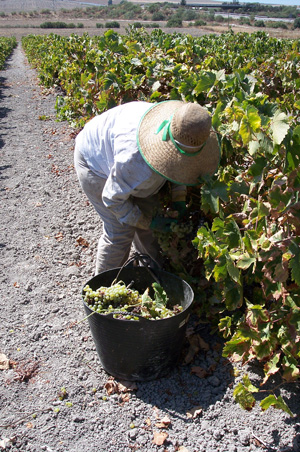Description
We consume different types of food every day, and in many cases we are not aware of its origin. Some of them have traveled thousands of kilometers to reach their destination, which means very high energy consumption for their transport, as well as emissions of pollutants associated with the modes of transport used.
In addition, a high percentage of food waste occurs during distribution, so the longer the journey the easier it will be for food to spoil.
What can I do?
 It consumes local products, also called zero kilometer, where the journey required to transport the products from their origin has been shorter. Consumption of zero-kilometer products also boosts trade and the local economy, and provides better profit margins for the producer.
It consumes local products, also called zero kilometer, where the journey required to transport the products from their origin has been shorter. Consumption of zero-kilometer products also boosts trade and the local economy, and provides better profit margins for the producer.- Pay attention to the origin of the products. Even if you are aware of the protection of the environment, an organic product that comes from the other end of the world can have a greater impact than another that is not certified, but is locally produced.
- It consumes seasonal products, where its natural cycle has been respected and the environmental impact is lower, as less energy and resources are used for its production.
- Avoid food waste by buying only those products that you need and in quantities suitable for consumption that you make later.
Impact on the environment

* Image: Harvest. Author: Unknown. Source: Image and sound bank of the Ministry of Education under a Creative Commons license [CC BY-NC-SA 3.0]